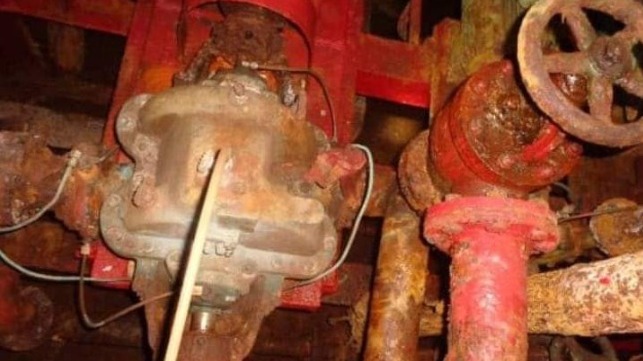Once Again, Houthis Interfere With UN Mission to Save Decaying Tanker

The UN project to assess and stabilize the deteriorating FSO Safer has been put on hold yet again by the Houthi rebels who control Yemen's northwestern coastline. This time, the delay could be more serious.
In November, a UN technical mission reached formal acceptance with the Houthis on a scope of work for inspection and "light maintenance" aboard the decaying FSO, which is laden with 1.1 million barrels of oil. However, UN officials report that the Houthis will not guarantee the security of the team, and may be reconsidering the agreement to allow inspectors onto the ship at all.
When the Yemeni civil war broke out in 2015, the Safer - an aged single hulled VLCC converted into an FSO - ran out of fuel, forcing her crew to shut down the inert-gas system that kept her cargo safe. Without inerting, hydrocarbon fumes in her tanks and on deck pose a real possibility of a serious fire or explosion. In addition, she is rusting away without any significant maintenance, and she suffered water ingress in her engine room in mid-2020. The leak gained the attention of the UN Security Council and prompted a sustained effort to get an inspection team on site, despite Houthi reluctance.
The conventional solution to the problem of a 45-year-old tanker is fairly clear, but getting there is proving difficult, both politically and technically. Virtually nothing is known about the FSO's arrangements or maintenance history, and the UN team believes that all records and drawings are stowed aboard the vessel herself. Her cargo pumps have been shut down for at least five years and are presumed inoperable.
The initial inspection and "light maintenance" mission intends to determine just how bad her condition is, then carry out some of the preliminary work necessary to keep the vessel afloat and the oil in the tanks. At minimum, this includes any needed repairs to her aft crane (for equipment access), her fire pumps, her bilge pump, her on-deck generator and the associated piping systems. The initial mobilization would include two AHTS, a crane barge, and a full crew of divers, engineers and welders.
Meanwhile, renewed fighting has broken out between Houthi forces and Yemeni government-allied troops in the adjacent port of Hodeidah, raising security risks for the technical mission (and the new risk of an errant artillery shell finding the tanker). The continuing disagreement with Houthi officials over access are compounding the problem.

that matters most
Get the latest maritime news delivered to your inbox daily.
"We have been preparing for mission deployment and have committed, to date, up to $3.35 million for the procurement of items and the deployment of personnel," said UN spokesman Stephane Dujarric in a statement. "In order to facilitate the leasing of technically equipped service vessels, which are required for the mission, we have requested the Houthi de-facto authorities to provide a letter with security assurances. We regret that, to date, we have not received a response to our multiple requests for this letter, the lack of which would increase the cost of the mission by hundreds of thousands of dollars."
In addition, Dujarric said, Houthi authorities appear to be considering a “review” of their formal approval of the UN mission to the Safer. Houthi officials have advised the UN to pause some of the preparations until after the outcome of a review, creating further delays.
